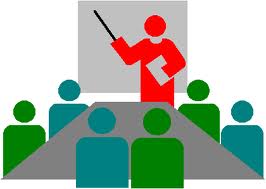Learning is an important psychological process that-determines human behavior. Learning can be defined as “relatively permanent change in behavior that occurs as a result of experience or reinforced practice”.
There are four important points in the definition of learning:
- Learning involves a change in behavior, though this change is not necessarily an improvement over previous behavior. Learning generally has the connotation of improved behavior, but bad habits, prejudices, stereotypes, and work restrictions are also learned.
- The, behavioral change must be relatively permanent. Any temporary change in behavior is not a part of learning.
- The behavioral change must be based oh some form of practice or experience.
- The practice or experience must be reinforced in order so as to facilitate learning to occur.
The components of learning process are: drive, cue stimuli, response, reinforcement and retention.
- Drive: Learning frequently occurs in the presence of drive – any strong stimulus that impels action. Drives are basically of two types -primary (or physiological); and secondary (or psychological). These two categories of drives often interact with each other. Individuals operate under many drives at the same time. To predict a behavior, it is necessary to establish which drives are stimulating the most.
- Cue Stimuli: Cue stimuli are those factors that exist in the environment as perceived by the individual. The idea is to discover the conditions under which stimulus will increase the probability of eliciting a specific response. There may be two types of stimuli with respect to their results in terms of response concerned: stimulus generalization and stimulus discrimination.
- Generalization occurs when a response is elicited by a similar but new stimulus. If two stimuli are exactly alike, they will have the same probability of evoking a specified response. The principle of generalization has important implications for human learning. Because of generalization, a person does not have to completely relearn each of the new tasks. It allows the members to adapt to overall changing conditions and specific new assignments. The individual can borrow from past learning experiences to adjust more smoothly to new learning situations.
- Discrimination is a procedure in which an organization learns to emit a response to a stimulus but avoids making the same response to a similar but somewhat different stimulus. Discrimination has wide applications in organizational behavior. For example, a supervisor can discriminate between two equally high producing workers, one with low quality and other with high quality.
- Responses: The stimulus results in responses. Responses may be in the physical form or may be in terms of attitudes, familiarity, perception or other complex phenomena. In the above example, the supervisor discriminates between the worker producing low quality products and the worker producing high quality products, and positively responds only to the quality conscious worker.
- Reinforcement: Reinforcement is a fundamental condition of learning. Without reinforcement, no measurable modification of behavior takes place. Reinforcement may be defined as the environmental event’s affecting the probability of occurrence of responses with which they are associated.
- Retention: The stability of learned behavior over time is defined as retention and its contrary is known as forgetting. Some of the learning is retained over a period of time while others may be forgotten.

This is VERY narrow view of learning, reflecting only ONE paradigm (postivism) and only ONE learning theory (behaviorism), therefore being very inaccurate.
What is stated above as learning as behavioral change, only applies when we use behaviorism as the theoretical base (e.g. Skinner, Thorndike, Watson). Cognitivists perceive learning as an information process (e.g. Ausubel, Bruner, Gagne), whereas constructivists see learning as creating meaning from experience (e.g. Dewey, Piaget, Vygotsky). Humanists (e.g. Maslow, Rogers) emphasize learning as personal development, and andragogists (Kapp, Knowles) view learning as adults’ self-directed need to know. This information is freely available in several sources. Please update your website!
Can you give a example for cue stimuli